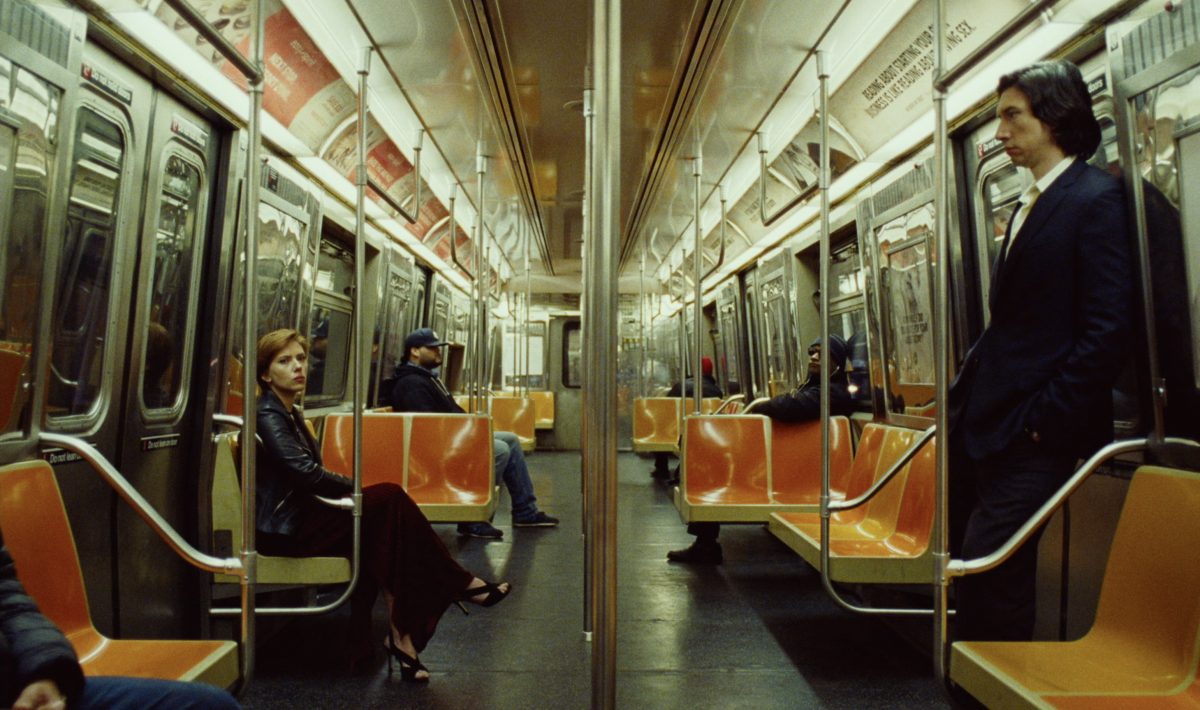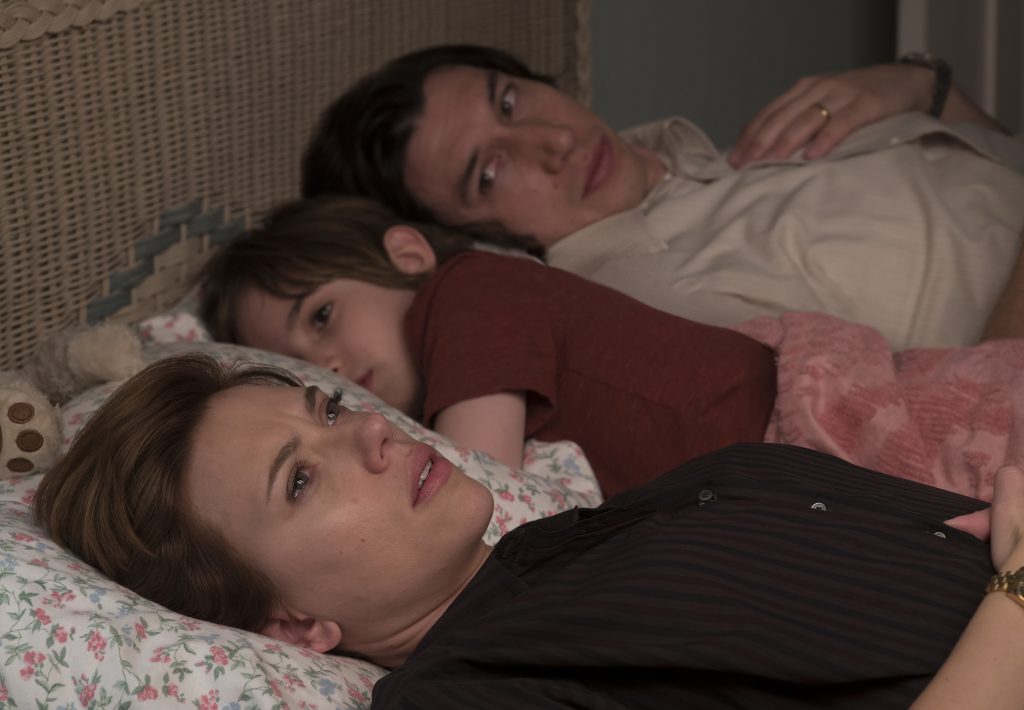Marriage Story by Noah Baumbach is already the third production of this caliber – I mean high-budget movies that almost simultaneously go to the cinema and the streaming platform – under the Netflix banner (after Cuarón’s Roma and Scorsese’s Irishman – and just before The Two Popes by Fernando Meirelles).
When almost one year ago I was wondering in what direction Netflix will be heading with its offer, I guessed that one of the most popular streaming platforms will be expanding in the field of so-called middle cinema[1] – including in its not-so-attractive film offer productions that are somewhere between artistic and mass cinema, author’s cinema, but controlled by the streaming platform. In short, works connecting a Sunday viewer with a festival goer.
One year is a relatively short period of time for film idustry, and Netflix, it seems, bet a lot on its high-budget productions and in that short time opened a bag with large titles. And one has to admit that each of them has been very solid so far (as evidenced by as many as 4 Golden Globes nominations for films produced by the platform). Is this a strategy that will allow Netflix to maintain its current position in the market and withstand the pressure of competitors (like Disney +, which inaugurated its presence with the series set in the Star Wars universe, The Mandalorian)? We will probably know the answer in some time (maybe in a year?).
Cutting this lengthy introduction, it’s time for me to think about Marriage Story itself. Baumbach is an artist who managed to prove that he can build stories with lightness and humor that can successfully compete with Woody Allen’s cinema (e.g. the wonderful, neurotic role of Greta Gerwig in Frances Ha from 2012)[2], he can also create a credible image of the family burdened with internal conflicts (The Meyerowitz Stories (New and Selected) from 2017).
The latest film by the American artist is a display of screenwriting skills and the lightness of building simple and accurate scenes from life in a crumbling marriage. Marriage Story is an educational film, because it tells about emotional immaturity, lack of communication skills in the relationship in which it should be the basis, as well as how unknowingly one can use another person, digging oneself in one’s individual, egoistic world.
Nicole (Scarlett Johansson) and Charlie (Adam Driver), suffering from a crisis of marital relationship, decide to divorce. From the very beginning of the film, their world (seen by them and their surroundings as a coherent organism) will be brutally divided into two (and their only link will be a few years old son, Henry). Baumbach chose a narrative based on a huge contrast that will be emphasized at every step – e.g. a fence that will divide the characters clearly seeking contact with each other, the division of space in the courtroom, clearly constructed differences between the “masculine” (Charlie’s aggressive lawyer) and “feminine” (Laura Dern as Nicole’s lawyer and adviser) world.
This contrast, although undoubtedly attractive, is also a major problem in Marriage Story. The director aptly presents the dynamics of the relationship suffering from the crisis, based on emphatic scenes from real life, well-written dialogues and emotions just waiting for the moment of explosion (Driver is slowly learning how to act!) – only that he sets his perspective somewhere in the middle, distancing himself from conflict, focusing on observation and giving up assessing this or that attitude.
In a film that dangerously uses the stereotypes of life in a relationship and plays with a general idea of what is “masculine” and what is “feminine”, neutrality is not enough. We will of course sympathize with Nicole when we learn that in the relationship she always gave up what was important to her for the needs of her husband (the path of a second-wave feminist who belatedly wakes up in a man-controlled home world). But Charlie will evoke a similar compassion when we will find out that he didn’t want to move to Los Angeles because of his love of work (oh, that painful face).
Sure, as I said earlier, the film is about emotional immaturity and a lack of contact skills – and this is absolutely fulfilled: it is enough to indicate the moment when the characters come to a serious conversation. Then, when they have a chance to make a decision together, they both remain silent, as if they were both waiting for the other person to take control and make the first move.
Something, however, makes the Marriage Story to crumble. And I think that this crumbling is well illustrated by the words spoken to Charlie by an aggressive lawyer: “You’ll find yourself somewhere between reasonable and crazy!” Masculine-feminine contrast will reach enormous proportions. Charlie will be sensible, factual, focused on work, closed, almost emotionless, obligatory – his city will be the ever-rainy, gray, gloomy New York. Nicole[3] will be neurotic, joyful, emotional and open, like the sunny spaces of Los Angeles.
But even the climax, when the tension finally finds its outlet and a great storm of emotions begins, there is no feeling that this dualism of the depicted world has been broken. He is still there and She is still there. As if the director wanted to show that the world is only complete when both of its hemispheres are connected.
And yet the world of divorce is often a world much closer reality to Gett: The Trial of Viviane Amsalem (Ronit Elkabetz, Shlomi Elkabetz, 2014) than to Marriage Story. It is a brutal, ugly, difficult and painful reality, where the breakup of relationships does not equal the division of the world into “masculine” and “feminine” – because it is simply an artificial division. After all, a person’s character is not based on gender.
As one friend of mine – who liked the movie – said: “They divorce so
beautifully only in movies”. I can answer not without irony: exactly.
[1] Not to be confused with the term used to refer to specific Bollywood works.
[2] And how much more enjoyable is watching cinema not burdened by the hand of a man accused of pedophilia and sex abuse.
[3] One scene that takes place in Japan unwittingly brings to mind Sofia Coppola’s Lost in Translation from 2003. If Coppola’s heroine were the same person in Marriage Story, one might think that her life had a sad, unimaginable emotional regress.







